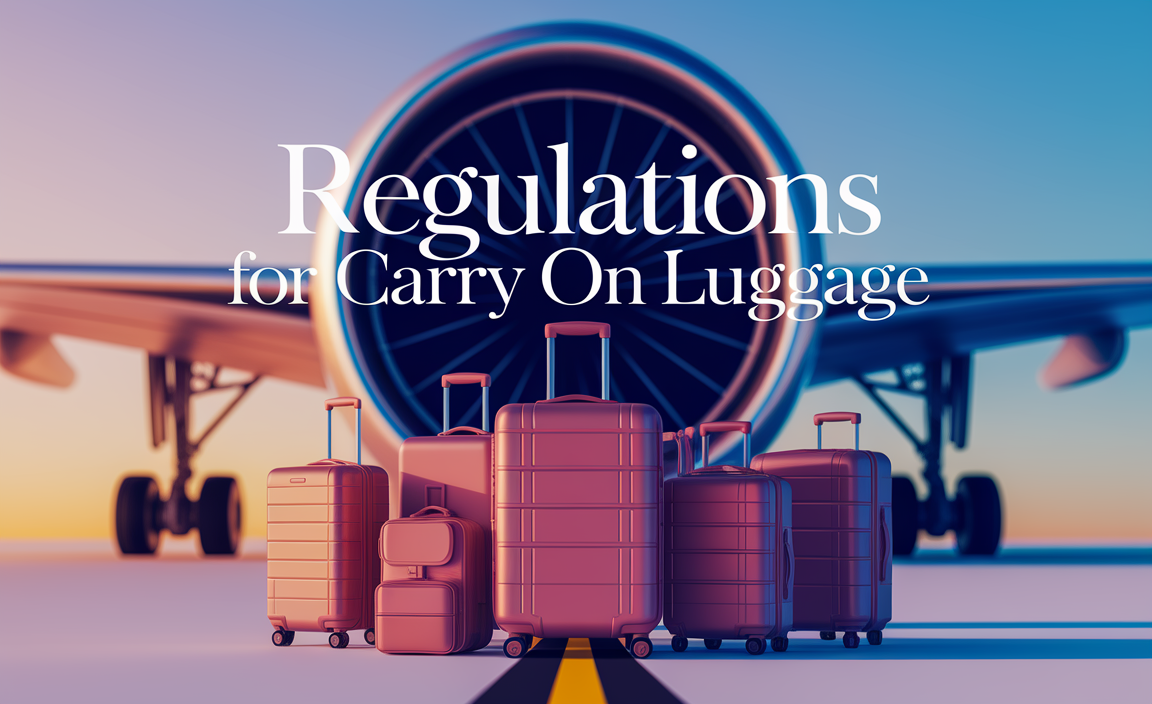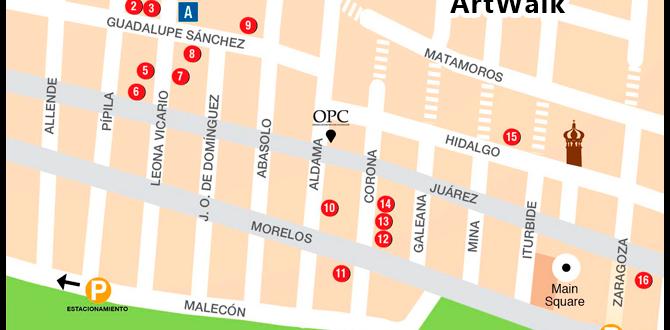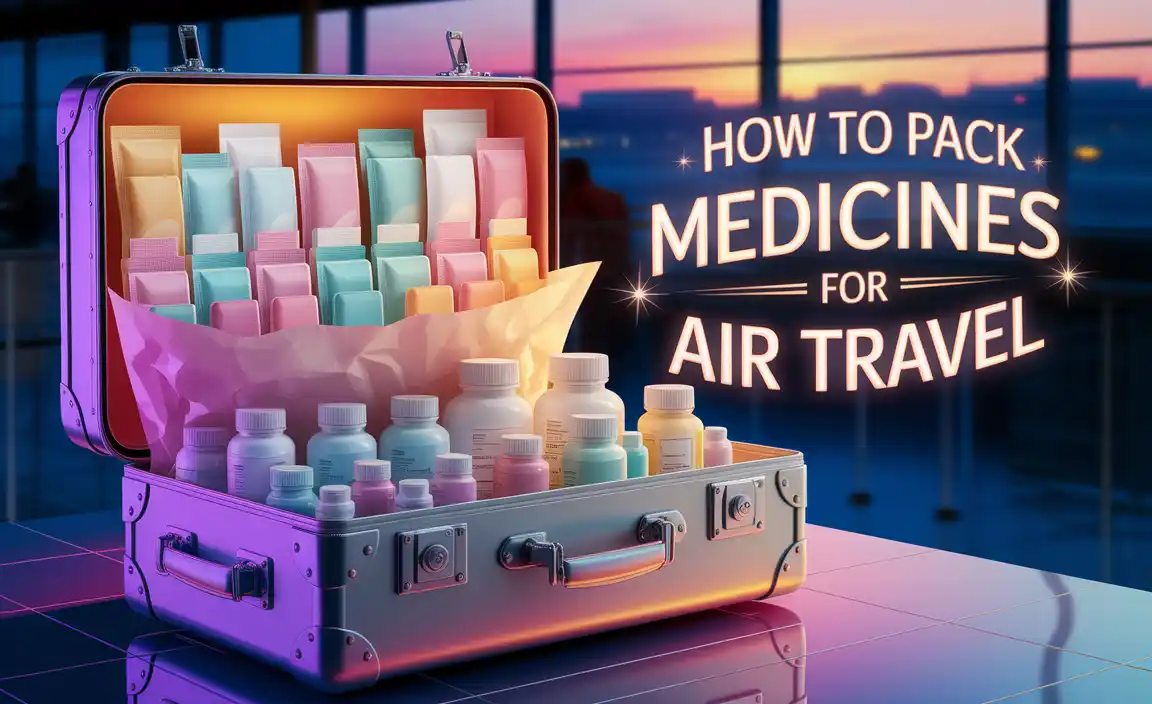Accra accessible travel guide essential tips focus on planning ahead, choosing accessible accommodations, utilizing reliable transport, and preparing for unique local conditions to ensure a comfortable and enjoyable trip.
Welcome, fellow adventurers! Planning a trip to a vibrant city like Accra can feel a bit daunting, especially when it comes to ensuring smooth and accessible travel. Many travelers worry about navigating new environments, finding suitable places to stay, and getting around without hassle. But don’t let those concerns dim your excitement! Accra is a city full of color, culture, and friendly faces, and with a little preparation, you can have an incredible experience. This guide is designed to break down the essentials, offering practical, easy-to-follow advice so you can focus on the joy of discovery. Let’s dive into making your Accra adventure as comfortable and stress-free as possible.
Planning Your Accessible Trip to Accra
Preparing for your trip to Accra is the first and most crucial step to ensuring an accessible and enjoyable time. This involves researching your destination, understanding local infrastructure, and making informed choices before you even leave home. A well-thought-out plan can preempt many potential challenges.
Researching Accra’s Accessibility
While many tourist destinations globally are rapidly improving accessibility, it’s essential to have realistic expectations for Accra. Public spaces and older infrastructure may not always meet the same accessibility standards as in some Western countries. However, many newer hotels, restaurants, and tourist attractions are increasingly conscious of providing better access.
Government Resources: Look for information from the Ghana Tourism Authority and relevant government bodies. While direct “accessibility reports” might be scarce, you can glean insights into general infrastructure development.
Traveler Forums and Blogs: Real-life experiences shared by other travelers, especially those with specific accessibility needs, are invaluable. Websites like Lonely Planet forums, TripAdvisor, and specialized accessible travel blogs can offer candid advice.
Direct Contact: Don’t hesitate to contact hotels, tour operators, and attractions directly to inquire about their specific accessibility features.
Choosing Accessible Accommodation
Your accommodation is your base, so picking the right place is paramount. Accessibility in hotels can range from simple ramps to fully equipped accessible rooms.
Dedicated Accessible Rooms: These often feature wider doorways, grab bars in the bathroom, roll-in showers, and lower sinks and counter heights. Always confirm these specifics when booking.
Ramps and Elevators: For properties with multiple floors or varied terrain, inquire about the presence and functionality of ramps and elevators.
Staff Assistance: Some hotels can arrange for staff to assist with mobility challenges if needed. Communicate your requirements clearly during the booking process.
Location: Consider the accessibility of the hotel’s immediate surroundings. Is the pavement usable? Are there sidewalks? Is the hotel within reasonable distance of essential services or attractions?
Some reputable international hotel chains operating in Accra often have more standardized accessibility features. Examples include:
Radisson Blu Hotel, Accra
Kempinski Hotel Gold Coast City Accra
Accra Marriot Conference Centre
It’s still advisable to confirm specific room features directly with the hotel.
Navigating Accra: Accessible Transportation Options
Getting around Accra requires a bit of planning, but several options can cater to different accessibility needs. Understanding these will help you move around the city with greater ease and confidence.
Taxis and Ride-Sharing Services
Taxis are abundant in Accra. While not all taxis will be equipped for passengers with mobility devices, many drivers are helpful and can assist.
Pre-booking: For greater certainty, consider pre-booking taxis, especially if you require specific assistance or a larger vehicle. Some local taxi companies might offer this service.
Ride-Sharing Apps: Apps like Uber and Bolt operate in Accra. You can often specify your destination and see estimated fares. While these apps primarily focus on point-to-point service, you can sometimes leave a note for the driver explaining any needs. Driver availability and vehicle type vary, so it might take a few tries to find a suitable ride.
Communicating Needs: When booking or hailing a taxi, clearly state if you need assistance with luggage or have specific needs regarding entry and exit.
Private Drivers and Accessible Vans
For a more consistent and tailored experience, hiring a private driver or a car service with accessible vehicles is a great option. This is particularly recommended for longer excursions or if you require a wheelchair-accessible van.
Benefits: Predictability, driver familiarity with accessible routes, and the ability to customize your itinerary.
How to Arrange: Many travel agencies in Accra specialize in bespoke tours. Alternatively, you can inquire with your hotel concierge. Booking in advance is essential.
Public Transportation Considerations
Accra’s public transport system, primarily composed of tro-tros (shared minibuses) and larger buses, can be challenging for individuals with mobility issues. These systems are often crowded, with less structured boarding and alighting, and limited space for mobility aids.
Tro-tros: Generally not recommended due to their small size, quick stops, and often steep steps.
Buses: Larger buses may offer more physical space, but accessibility for boarding and alighting can still be an issue. Best suited for those who can manage a few steps independently with some assistance.
Walking and Sidewalks
While walking is a common way to experience parts of Accra, be prepared for variability in sidewalk conditions.
Uneven Surfaces: Sidewalks can be narrow, cracked, or nonexistent in some areas.
Street Vendors: Busy market areas might have vendors extending into walkways, reducing space.
Drivers: Roadside traffic can be dense, so be mindful of vehicles when navigating pedestrian areas.
Always wear comfortable, supportive shoes. If using a wheelchair or scooter, exercise caution and stay aware of your surroundings.
Essential Tips for On-the-Ground Comfort and Safety
Beyond accommodation and transport, several practical tips can significantly enhance your comfort and safety while exploring Accra. These focus on personal preparedness and awareness of your environment.
Staying Hydrated and Prepared for the Climate
Accra has a tropical savanna climate, characterized by high temperatures and humidity. Staying hydrated is crucial.
Carry Water: Always have a bottle of water with you. Many establishments offer filtered or bottled water.
Sun Protection: Wear a hat, sunglasses, and sunscreen. Seek shade during the hottest parts of the day, usually between 11 AM and 3 PM.
Light Clothing: Opt for lightweight, breathable fabrics like cotton or linen. Loose-fitting clothing is most comfortable.
Managing Personal Care Needs
For travelers who require personal care assistance, like using adult or child diapers, preparedness is key.
Pack Sufficient Supplies: Bring an ample supply of any personal care products you need, as specific brands or types may not be readily available in local stores. This includes items like adult disposable briefs or child diapers.
Discreet Disposal: Familiarize yourself with local waste disposal customs. Many public restrooms may not have a bidet or specialized disposal units. Carrying a discreet disposal bag can be helpful.
Comfort for Travel: For long journeys, whether by plane or road, comfortable and reliable adult or child diapers are essential for peace of mind. Look for brands offering good absorbency and a comfortable fit, such as those from trusted manufacturers that prioritize skin health, like Always Discreet or Pampers Swaddlers, especially if traveling with infants. You can find detailed comparisons and reviews online to ensure you choose the best option for your needs.
Health and Safety Precautions
Vaccinations and Medications: Consult your doctor about recommended vaccinations and malaria precautions before your trip. Carry any personal medications in their original packaging with a copy of your prescription.
Food and Water Safety: Stick to bottled water and be cautious with street food. Opt for well-cooked meals.
Emergency Contacts: Keep a list of important phone numbers, including your embassy or consulate, hotel, and emergency services. The Ghana National Ambulance Service can be reached at 112.
Hand Sanitizer: Carry hand sanitizer for use when soap and water aren’t available.
Navigating Local Markets and Crowds
Accra is famous for its bustling markets, such as the Makola Market. While vibrant, they can be overwhelming.
Pace Yourself: Visit markets during less crowded hours if possible, perhaps weekday mornings.
Stay Aware: Keep your belongings secure and be mindful of your surroundings in crowded areas.
Ask for Help: If you need to navigate a particularly busy section, don’t hesitate to ask fellow shoppers or vendors for assistance.
Must-Visit Accessible Attractions and Experiences
Accra offers a wealth of cultural and historical sites, and many are becoming more accessible. Here are a few recommendations, with notes on accessibility where applicable:
Independence Square
A significant national landmark, Independence Square is a vast, open public space.
Accessibility: The grounds are largely flat and paved, making it relatively easy to navigate with a wheelchair or mobility aid. It’s a great place for a stroll and to take in historical monuments.
Considerations: The sheer size means you can cover a lot of ground comfortably.
National Museum of Ghana
The National Museum is a repository of Ghana’s rich history and culture.
Accessibility: While efforts are being made to improve accessibility, older national institutions can vary. It’s best to call ahead or inquire upon arrival about ramps, elevator access (if applicable), and restroom facilities. Renovations can significantly impact accessibility, so checking current status is wise.
What to Expect: Exhibits cover ethnography, natural history, and archaeology.
Kwame Nkrumah Mausoleum and Memorial Park
A beautiful park and resting place for Ghana’s first president.
Accessibility: The grounds are generally well-maintained and paved, offering good accessibility for walking and wheelchairs. There are ramps and accessible paths.
Key Features: The museum inside displays artifacts and information about Nkrumah’s life and achievements. Check museum accessibility directly.
Artists Alliance Gallery
One of West Africa’s premier art galleries, showcasing contemporary and traditional African art.
Accessibility: Galleries often have a focus on visitor experience. This gallery is known for its spacious layout, which can be beneficial for navigation. Inquire directly about specific ramp or elevator access if needed for upper floors or specific areas.
Experience: A fantastic way to experience Ghanaian art and craftsmanship.
Labadi Beach & Teshie-Nungua Beaches
Accra has several beaches offering a chance to relax by the Atlantic.
Accessibility: Beach access can be challenging. While some main access points might be smoother, the sand itself is naturally difficult to traverse for wheelchairs or those with mobility impairments. Some resorts or beach clubs along the coast might offer better-controlled access for their patrons.
Tips: Visit with someone who can assist you on the sand, or enjoy the atmosphere from a nearby restaurant or bar with ocean views.
Table: Estimating Travel Costs (Per Person, Per Day)
Here’s a sample budget to give you an idea of daily expenses in Accra. Prices are approximate and can vary significantly based on your choices and the time of your visit.
| Category | Budget Traveler (USD) | Mid-Range Traveler (USD) | Luxury Traveler (USD) |
| :——————- | :——————– | :———————– | :——————– |
| Accommodation | $30 – $60 | $70 – $150 | $200+ |
| Food | $15 – $25 | $30 – $50 | $60+ |
| Local Transportation | $5 – $10 | $20 – $40 | $50+ |
| Activities/Sightseeing | $10 – $20 | $30 – $50 | $70+ |
| Miscellaneous | $10 – $15 | $20 – $30 | $40+ |
| Total Per Day | $70 – $130 | $170 – $320 | $420+ |
Note: This table does not include pre-trip expenses like flights, visa fees, or travel insurance.*
Frequently Asked Questions About Accessible Travel in Accra
Q1: Is Accra generally safe for tourists with disabilities?
Accra is generally considered safe for tourists, including those with disabilities. However, like any large city, it’s always wise to exercise caution, be aware of your surroundings, especially in crowded places, and take standard safety precautions. Communication and preparation are key.
Q2: Are there accessible restrooms in Accra?
Accessible restrooms are more common in modern hotels, larger restaurants, and newly built tourist attractions. Public facilities can be limited and may not always be fully accessible. It’s advisable to check with your accommodation or planned destinations beforehand.
Q3: Can I rent a wheelchair or other mobility devices in Accra?
Renting specialized mobility equipment like wheelchairs or scooters directly in Accra can be challenging, as dedicated rental services are not as widespread as in some other global cities. It is often more reliable to arrange for such equipment to be brought with you or to explore options with specialized accessible travel agencies if you are on a guided tour.
Q4: What is the best way to communicate accessibility needs to hotels and transport providers?
Direct communication is best. Be clear and specific about your needs through email or phone calls when booking. If possible, use simple English phrases or have a written note of your requirements. Hotel concierges are often well-equipped to assist with further arrangements.
Q5: Are there specific travel insurance policies for accessible travel?
While specific “accessible travel insurance” policies might be rare, standard travel insurance often covers medical emergencies and trip interruptions. Ensure your policy covers any pre-existing conditions and understand the coverage for mobility-related incidents. Always read the terms and conditions carefully.
Q6: What kind of currency is used in Ghana, and where can I exchange money?
The currency in Ghana is the Cedi (GHS). You can exchange major currencies like USD, EUR, and GBP at forex bureaus, banks, and some hotels. ATMs are also available in Accra, accepting major international cards, but it’s wise to carry some local currency for smaller purchases, especially outside major tourist areas. Using a travel-friendly credit card that minimizes foreign transaction fees is also recommended.
Conclusion
Accra is a dynamic and welcoming city, offering a rich tapestry of culture, history, and vibrant energy. By focusing on thorough planning, choosing accessible options for accommodation and transport, and staying prepared for the local climate and environment, you can ensure a truly enriching and comfortable travel experience. Remember that enthusiasm and a spirit of adventure go a long way, and the warmth of the Ghanaian people will undoubtedly make your visit memorable. With these essential tips from your Journey Essentials guide, you’re well-equipped to explore, discover, and enjoy all that Accra has to offer. Happy travels!







